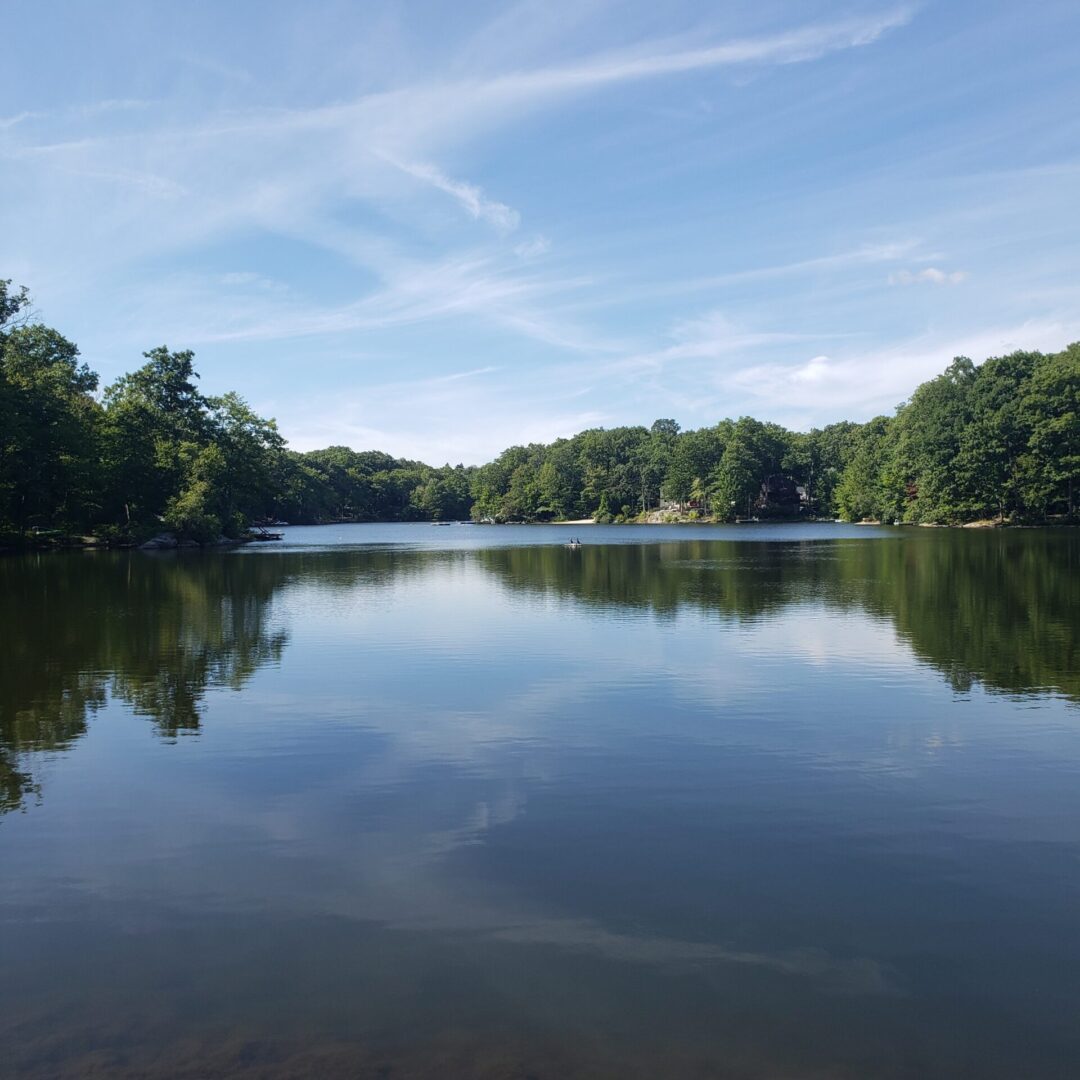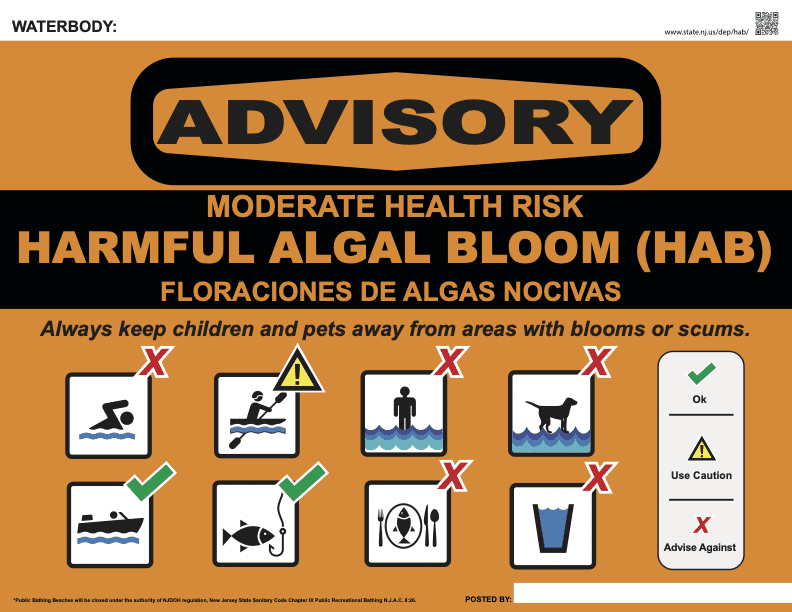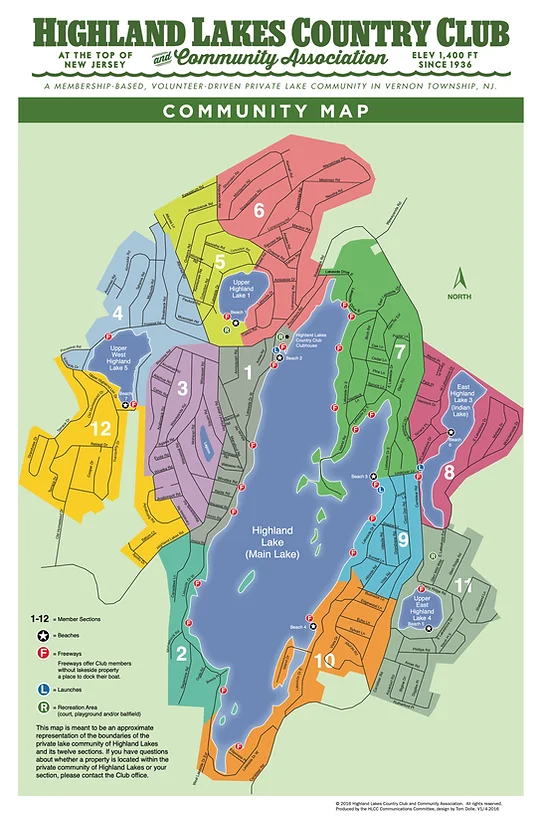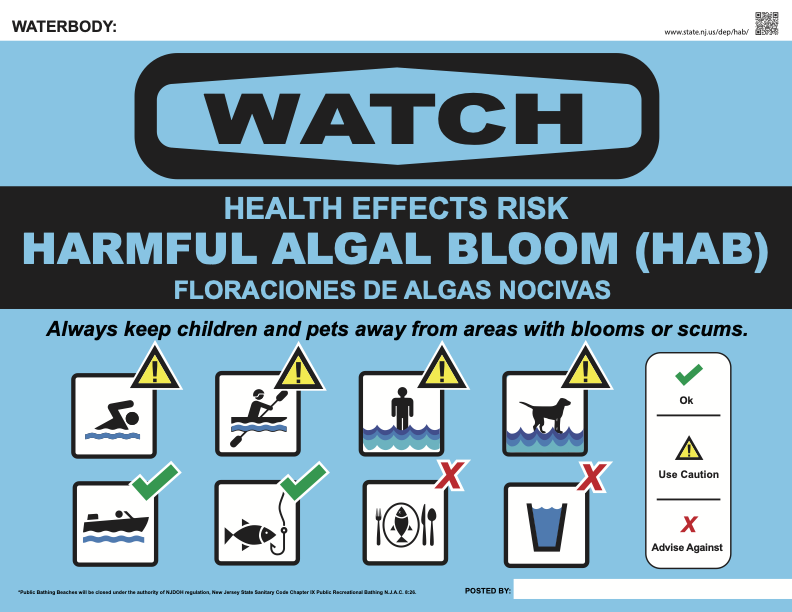
IMPORTANT HEALTH NOTICE: Lake 3 HAB
July 30, 3:00 PM – Lake 3 HAB raised to Advisory Level.

—–
July 8, 2:00 PM – There is a suspected HAB developing in Lake 3. The Club’s treatment contractor has been notified and samples will be lab-tested to confirm.
Members and guests are advised to use caution when swimming, boating or allowing pets in the water.
Do not eat fish taken from the lake.
Notices were posted to inform members to exercise appropriate caution.
This notice is based on our recent observations and preliminary analysis of lake conditions. Water samples will undergo laboratory testing to determine the level of cyanobacteria and whether any toxins may be present.
Updates will be posted as needed.
Following is a summary of common questions and answers about harmful algae blooms.
Q: What causes lake conditions such as cyanobacteria and HABs?
A: Cyanobacteria occur naturally in nearly all NJ freshwater lakes. Excess nutrients in the water, higher than normal temperatures and bright sunny days can cause their levels to grow exponentially, resulting in what is called an algae bloom.
Q: If the lake is closed, when will it reopen?
A: A lake that has an occurence of an HAB will reopen only after 2 successive samples indicate that the cell counts are below the NJDEP Advisory level and no cyanotoxins are detected.
Q: Should I be concerned about all the algae I see in/on the lakes? Is it all harmful?
A: No. In fact, most algae are harmless and amount to nothing more than an unsightly and sometime smelly nuisance. However, cyanobacteria, also known as blue-green algae, are naturally present in lakes and streams and have the potential to form harmful algae blooms (HABs). Microscopic and chemical analysis are required to positively confirm the existence of a HAB.
Q: What is the Club doing to treat and control algae and the health of our lakes?
A: First, there is no foolproof method to prevent HABs short of sterilizing the entire lake with chlorine or similar compounds, effectively killing all aquatic life, and turning it into a swimming pool. The Club employs two well-respected and highly qualified firms; Princeton Hydro, which performs inspections, water quality monitoring and analysis, and Lake Management Sciences, which also performs inspections and is responsible for application of appropriate lake treatment compounds when needed. From Spring to Fall, both Princeton Hydro and Lake Management Sciences visit each lake two or more times each month to inspect and sample the waters, provide narrative reports, lab test results, and lake management recommendations.
For more information on HABs, visit the NJDEP website at https://www.nj.gov/dep/hab/.
Notices will be posted and released via email and this post whenever levels are detected which exceed those established by the NJ DEP.



